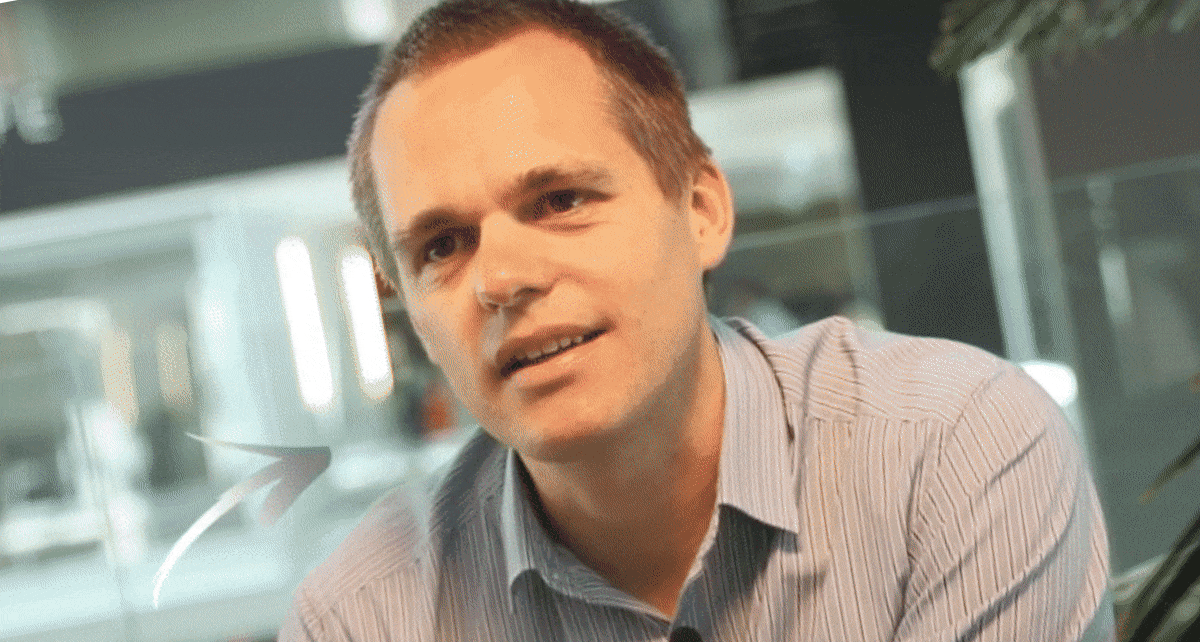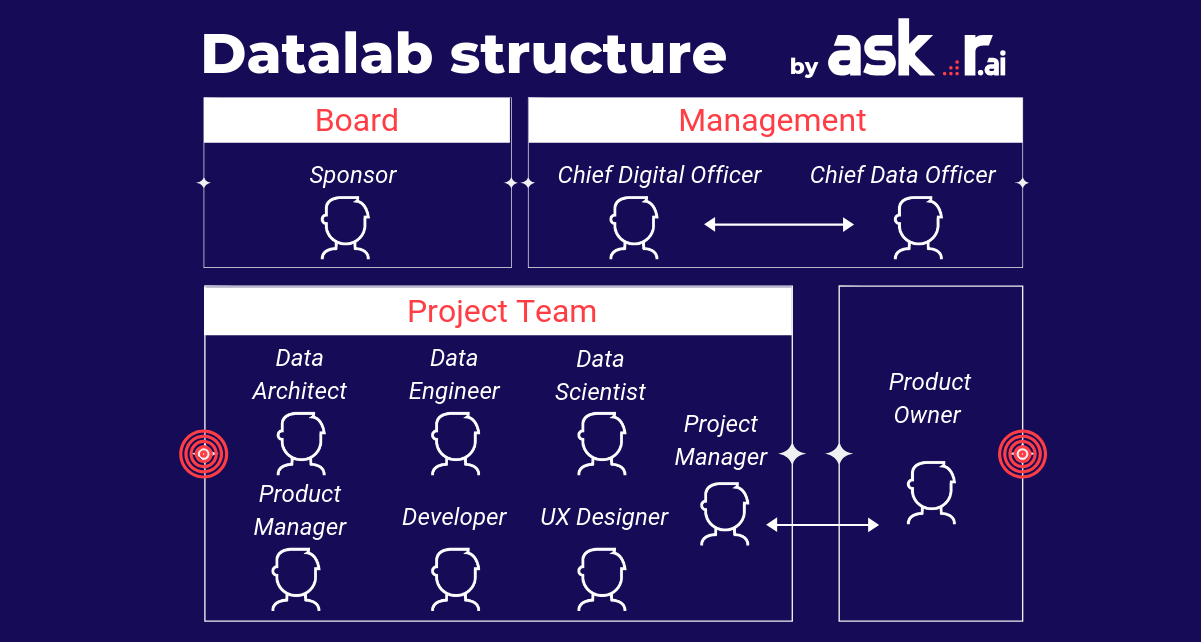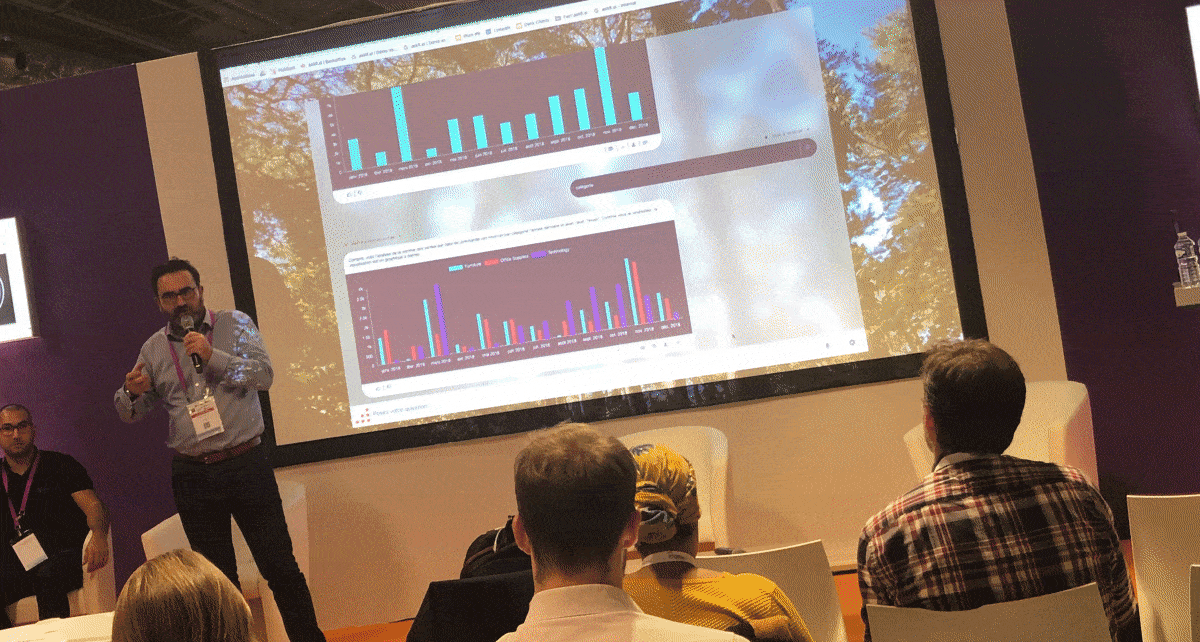Key accounts‘ opinion on DataLab (ENGIE, TF1, MAIF…)
Data Lab, Data Fab, Data Innovation Lab… Whatever expression is used, this kind of structure have been flourishing for 4 or 5 years. Paradoxically, Gartner still pointed out in 2017 that 85% of Big Data projects failed*. Wait, what ? A datalab would not be enough to properly gather and exploit data to make it available to every business users…? Read these major accounts testimonials to find out.
DATA projects : common difficulties.
One of the main reason for failure concerning data is the low adoption rate of new tools. The issue of adopting innovation is nothing new for change managers, who are confronted to change resistance on a daily basis. It is ridiculously obvious, and yet, leading countless initiatives to death.
When it comes to enterprise data, you will then be confronted to silos. Every business unit will go right to familiar context without a glance for general value creation. And when it comes to searching for relevant use cases, you can easily be blinded by the competition showing-off instead of focusing on your own business, because you are afraid of being left aside.
These 3 dead-end have in common the neglect of the innovation concept in its core definition: searching for a new, non-existing path. The best way to avoid these dead-ends? Taking into account data-specific technological needs and offering an environment favourable to new ideas to flourish.
Definition of a datalab: innovative workspace to explore, find and execute data driven improvements of business processes.
Different structures and one goal to bind them all: transversal transformation.
A datalab has to come within the scope of a company’s global transformation. It might be its spearhead or a simple side-project. Olivier Baes, MAIF dataLab manager, presents “the MAIF digital transformation support at every step through conferences, community management and internal communication” as its datalab main mission.
Various models are possible.
An independant datalab is possible, made of data specialists working on projects as an independent cell. At Generali France for instance, the board chooses projects to implement. Employees are trained from 3 to 6 months within the datalab, according to subjects. When they are sent back to their teams, they acquired new data skills they can use and share to the whole team, explains Hélène N'Diaye, member of Generali COMEX.
At GRTgaz, it is more about experimentation offered by its datalab structure. A place outside of the company premises was chosen on purpose to give a unique space for considering submitted business issues in a different way. According to Frederic Mours, head of Datalab of the industrial leader, accessing data is a strategic challenge as most of the teams are on the field.
On the other side, Swiss Life launched a more transversal organisation with its team members. DataLab members keep their original missions and work simultaneously on AI and data science matters. The Datalab depends on the COMEX, data strategy being directed by Cynthia Traoré. The SwissLife DataLab members meet regularly to exchange on various data issues.
At TF1, data issues are handled inside of the innovation center named MediaLab. Every 6-month start-up batches answer different issues of this TV channel core business. Every Business units own a start-up with whom a project has already been set. “ The first stake is always operational, which means data is always at the center of our business concerns”, underlines Florence Caghassi, Open Innovation Program Manager at TF1.
To conclude, a structure entirely dedicated to data promotion has to be a pilar of innovation strategies of big accounts. It can be a place, a team, transversal skills … But it has to help new solutions flourish, thanks to data-based exchanges .
“Not only is data exploitation about digital, but also a mindset that comes from more team interactions. “
Nadège Vignol, Head of Data Innovation Lab Engie
* source Nick Heudecker, Gartner 2017
Sources : Le datalab de Generali France // Faut-il un data lab pour innover ? Data Analytics post // Un data lab pour l’innovation, entretien avec Nadege Vignol











